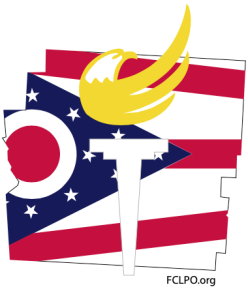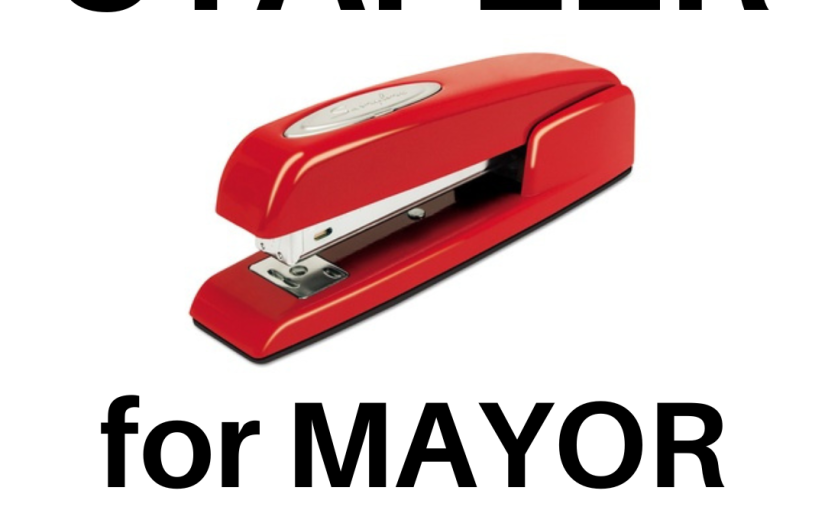#ThinkLibertarian
Category: Political Opinion
Public education fails because the government has no incentive to provide a quality product.
Funding for schools is guaranteed through taxes, which people must pay whether or not they are satisfied with the education system. These taxes are enforced by laws, and refusing to pay can lead to fines or imprisonment. This system forces people to support public schools even if they believe those schools are failing.
Accountability in public education is nearly impossible. Schools do not rely on satisfying parents or students to stay funded. Instead, they are run by government bureaucracies that make decisions far removed from the needs of individual families. Parents cannot withhold their tax dollars to protest poor performance, and most families cannot afford private school tuition after paying taxes to fund public schools. This leaves them trapped in a system that does not have to compete for their support.
Public schools operate as a monopoly. There are no consequences for poor performance because families have few alternatives. Unlike businesses in a free market, schools do not have to compete to attract customers. If a business offers bad service or products, people can stop buying them. Public education does not allow this option, so schools have no reason to improve.
The system rewards inefficiency. Bureaucracies grow, teachers’ unions protect underperforming staff, and students suffer the consequences. Innovation and improvement are rare because there is no pressure to do better. The guaranteed funding and lack of competition create a stagnant system that prioritizes its own survival over quality education.
This structure fails students and families. Without competition, schools do not have to prove their value. The result is a system that costs taxpayers billions while delivering mediocre results. Families cannot escape it, and the government has no reason to fix it.
Stapler brings it together.
It’s actually much worse.
We won’t have to wheel around stacks of money to buy bread, but the pain will be the same.
Amendment Proposal: The Freedom of Relationship and Contract Amendment
Section 1: Purpose
The State of Ohio recognizes the inherent right of individuals to form personal relationships and enter into contractual agreements without government interference. This amendment ensures that the regulation of marriage and other relationship contracts remains outside the purview of the state government, preserving personal autonomy and equality under the law.
Section 2: Rights of Individuals
(A) The State of Ohio shall not define, regulate, license, or restrict the formation of personal relationships or contractual agreements between consenting individuals.
(B) No legal distinction shall be made based on the nature, form, or participants of personal relationships or contracts, provided all parties are of legal age and consent.
Section 3: Legal Contracts and Protections
(A) Individuals entering into relationship agreements may establish private contracts to define their rights, responsibilities, and obligations.
(B) Courts shall adjudicate disputes concerning such agreements under existing principles of contract law, without preference or prejudice based on the nature of the relationship.
Section 4: Non-Discrimination
(A) Public and private entities within the State of Ohio shall recognize and treat all private relationship agreements equally under the law.
(B) No individual or group shall be compelled to participate in, recognize, or facilitate any relationship agreement contrary to their beliefs, provided such refusal does not violate other established laws prohibiting discrimination.
Section 5: Transition Provisions
(A) Existing marriage licenses and state-recognized relationship agreements shall remain valid but will no longer require state renewal or oversight.
(B) All references to “marriage” or similar terms in Ohio law shall be interpreted as private agreements between consenting individuals, without requiring government recognition.
Section 6: Severability
If any provision of this amendment is found to be unconstitutional or invalid, the remaining provisions shall remain in full force and effect.
This amendment aims to shift the regulation of personal relationships from the state to the individuals involved, using contract law to protect their agreements while ensuring that discrimination and undue burdens are avoided.
This is a draft proposal for discussion purposes only and not endorsed by FCLPO.
Legislation Proposal: Creation of the Ohio State Bank and Gold-Backed Digital Currency
Section 1: Title This Act shall be known as the “Ohio Economic Stability and Sound Money Act.”
Section 2: Purpose The purpose of this Act is to:
- Establish the Ohio State Bank to support the economic growth and financial independence of the State of Ohio.
- Introduce and operationalize a gold-backed digital currency (“Ohio Gold Digital Currency”) to provide residents and businesses with a stable and constitutionally compliant alternative to Federal Reserve Notes.
- Facilitate real-time currency conversion at points of sale to ensure seamless integration of the Ohio Gold Digital Currency into existing financial systems.
- Empower Ohio residents and businesses with greater monetary freedom while stabilizing the regional economy.
Section 3: Establishment of the Ohio State Bank
(a) Creation: The Ohio State Bank (“OSB”) is hereby established as a publicly-owned financial institution under the oversight of the State of Ohio.
(b) Governance: The OSB shall be managed by a Board of Governors appointed by the Governor of Ohio, subject to confirmation by the State Senate, and shall include representatives from banking, finance, legal, and public sectors.
(c) Functions: The OSB shall:
- Manage the issuance and operation of the Ohio Gold Digital Currency.
- Serve as a depository institution for state funds and financial transactions.
- Offer services to Ohio-chartered banks, credit unions, businesses, and individuals, including loans, investment opportunities, and transaction processing.
- Ensure compliance with all state and federal laws.
Section 4: Ohio Gold Digital Currency
(a) Issuance: The OSB is authorized to issue the Ohio Gold Digital Currency, backed by physical gold reserves held in trust by the bank.
(b) Legal Framework: The Ohio Gold Digital Currency shall:
- Be fully compliant with the U.S. Constitution and federal regulations.
- Operate as a voluntary alternative to Federal Reserve Notes for transactions within Ohio.
- Be redeemable for physical gold at a rate set and maintained by the OSB.
(c) Technology: The Ohio Gold Digital Currency shall be based on a secure blockchain system ensuring transparency, security, and accessibility.
(d) Integration: The OSB shall facilitate real-time currency conversion mechanisms, allowing seamless transactions between Federal Reserve Notes and Ohio Gold Digital Currency at participating merchants and financial institutions.
Section 5: Participation
(a) Eligibility: All Ohio residents, businesses, state-chartered banks, and credit unions may participate in the Ohio Gold Digital Currency system.
(b) Enrollment: Residents and institutions may voluntarily enroll in the program through the OSB or participating financial institutions.
Section 6: Economic Benefits The Ohio Gold Digital Currency aims to:
- Provide residents and businesses with a stable monetary alternative amidst inflationary pressures.
- Stimulate local economic growth through sound investment backed by a tangible asset.
- Expand opportunities for state-chartered banks and credit unions to participate in gold-backed investment and lending initiatives.
Section 7: Funding and Implementation
(a) Initial Capitalization: The Ohio General Assembly shall allocate funding for the initial establishment of the OSB, including:
- Acquisition of gold reserves.
- Development of the digital currency platform.
- Outreach and education programs for residents and businesses.
(b) Ongoing Revenue: The OSB shall generate revenue through transaction fees, investment returns, and other financial services.
(c) Timeline: The OSB and Ohio Gold Digital Currency shall become operational within 18 months of the enactment of this Act.
Section 8: Oversight and Accountability
(a) Audits: The OSB shall be subject to annual audits by an independent third party to ensure transparency and fiscal responsibility.
(b) Reports: The OSB shall submit quarterly reports to the Ohio General Assembly on the performance and adoption of the Ohio Gold Digital Currency.
Section 9: Severability If any provision of this Act is found to be invalid or unconstitutional, the remaining provisions shall remain in full force and effect.
This is a draft proposal for discussion purposes only and not endorsed by FCLPO.
Conspiracy time!
Important decisions can wait till later. /s
#ThinkLibertarian








